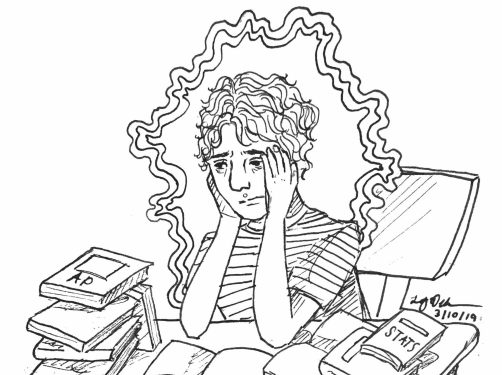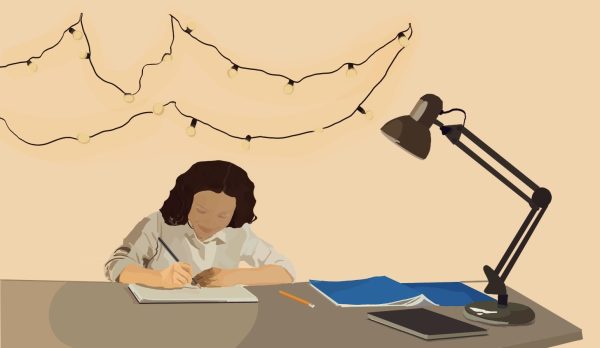Students Should Consider Mental Health Days

Over 21 percent of American teens have experienced severe mental health disorders, according to the National Alliance on Mental Illness. (Graphic/ Lang Delapa)
Last month, I took a mental health day. After staying after for hours every day due to my roles as director in the Film Festival and Editor-in-Chief, followed by doing my homework for even more hours, I realized I needed one day to relax. So finally, I picked a day that I—shockingly enough—had no tests or quizzes and stayed home where I—for once—did absolutely nothing. When I came to school the next day, my teachers or classmates asked me where I was, to which I uncomfortably replied that I needed a day to myself to recharge. I felt as though my answer was inadequate or that people would just assume that I was lazy; however, though mental health problems are not as visible as or do not have clear symptoms like physical ailments, they should still be treated with the same severity.
No, I did not have a cough or fever or contagious illness that prevented me from coming school for safety reasons, but I knew that staying home and relaxing was in my self interest, which is a decision that few are capable of making. Admittedly, I felt silly because I technically had no legitimate reason to stay home; physically, I could go to school and would likely be fine. But with that being said, if I had continued following the same strenuous schedule I had been for the majority of the school year, it would have ultimately affected my physical health. I frequently find myself overwhelmed in times of stress, and I know the measures I need to take to combat these feelings, including taking a mental health day when necessary.
Arguably, just one day will not cure all of someone’s problems, yet one day is better than nothing, and underestimating the power of this one day would be remiss of us. On my day off, I did all of the things I had been wanting to do for months but could never find time for: watching movies and finishing a book that had been collecting dust for ages, and doing these things immediately put me in a better mood. I was also finally able to sleep in, which is essential for both mental and physical health. Though small, these two aspects of my day contributed to a more relaxed state of mind and gave me the power to continue with my busy daily schedule. Mental health days look a little different for everyone, but overall, considering what is beneficial to one’s mental health is crucial for self care.
An overwhelming 83 percent of the U.S. population are not functioning at their optimal mental health, according to the Department of Health and Human Services. Though this statistic is rather significant, it does not get talked about enough. Many people are simply pushing through their mental health issues either because they do not realize there is an issue or because they believe that they are fine since they do not have any physical issues.
More people need to prioritize their mental health and learn that living in a constant state of stress and anxiety is not normal and should be addressed. Too many high school students are constantly overwhelmed by all of their schoolwork and extracurriculars, to the point where they neglect themselves. Although our automatic response to a physical problem is to go to the doctor or do any measures to address it, our responses to mental health problems are not the same. We adapt to stress rather than combat it.
So while I am not encouraging everyone to skip school just because they do not feel like going, I do think it is essential that we all take a look in the mirror and think about the state of our mental health. If you had the flu, you would not be in school, so why come to school when suffering from mental health issues? Take a bubble bath, binge watch Netflix, sleep for 12 hours: do whatever is necessary to give your mental health the proper attention it requires.

Jess Ferguson is a senior and an Editor-in-Chief of The Rebellion. At Walpole High School, she is a director in the Film Festival and a member of the National...











